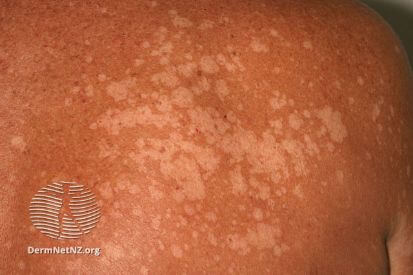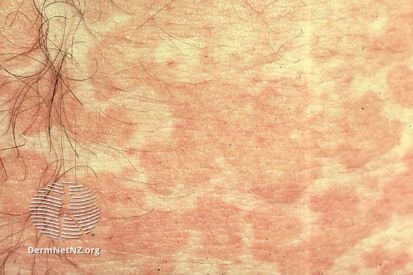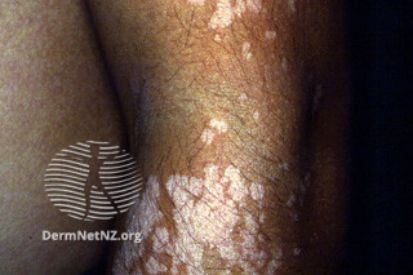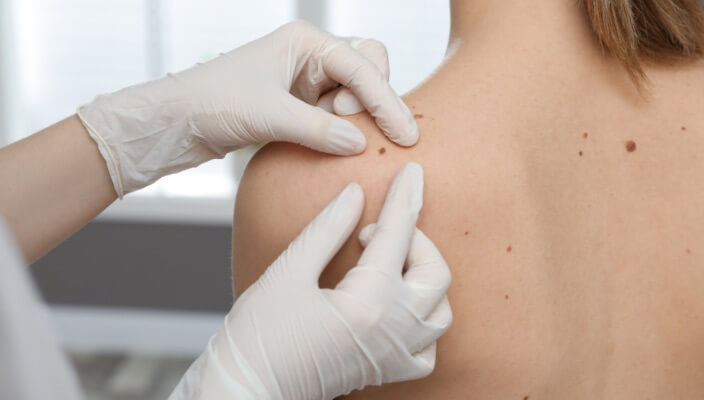Tinea Versicolor
The dermatologists at Macaione and Papa in the Delaware Valley treat Tinea Versicolor with specialized creams, shampoos, or pills that kill the fungus. They might recommend a stronger medication if the infection is severe. Scheduling your skin consultation can help you and your dermatologist determine the best course of treatment for your diagnosis.
Following your dermatologist's advice for the best results will lead you to accomplishing your healthy skin goals.
Examples of Tinea Versicolor



What are the Symptoms of Tinea Versicolor?
- Patches may be pink, tan, or brown.
- Can merge to form larger areas.
- Tinea versicolor is more noticeable after sun exposure because the fungus inhibits the normal tanning response.
What Causes Tinea Versicolor?
- Tinea versicolor is caused by an overgrowth of the yeast-like fungus Malassezia on the skin.
- The fungus disrupts normal pigmentation, leading to the development of discolored patches on the skin.
- Factors like heat, humidity, and oily skin can contribute to the overgrowth of Malassezia.
Prevention
Tinea Versicolor FAQs
Dermatologists often diagnose Tinea Versicolor by examining the affected skin and may use a Wood's lamp for better visibility. If you notice persistent discoloration or changes in your skin, consult a dermatologist.
Recurrence is possible, especially in warm and humid environments. Dermatologists may recommend antifungal shampoos or other preventive measures to minimize the risk of recurrence.
Yes, Tinea Versicolor can affect facial skin. Dermatologists may recommend specialized treatments for the face, such as antifungal creams or washes designed for sensitive areas.
Sun exposure can worsen Tinea Versicolor. Dermatologists often advise avoiding prolonged sun exposure and may recommend specific sunscreens or protective measures to prevent exacerbation.
Treatment Options for Tinea Versicolor

Schedule With Macaione and Papa
Call to make an appointment with our Delaware Valley Dermatology Practice
